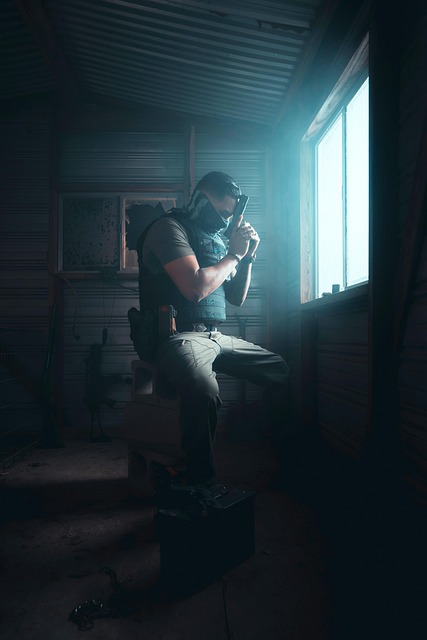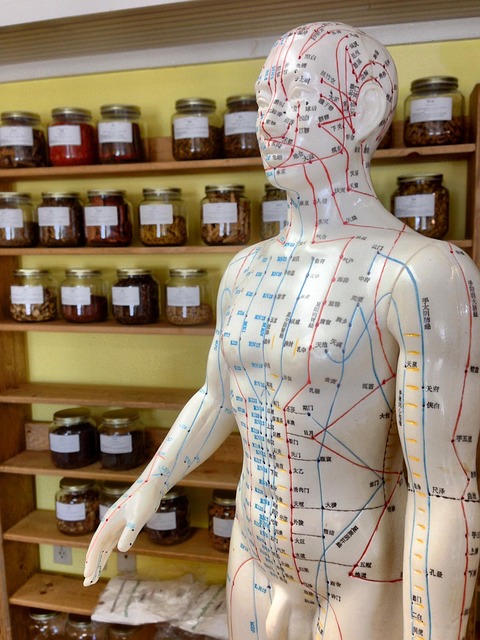Support groups play a pivotal role in the PTSD treatment landscape, offering individuals affected by post-traumatic stress disorder a safe haven for healing. This article delves into the significance of these groups, highlighting the benefits of group therapy and its impact on mental health recovery. We explore various support group types, emphasize creating therapeutic environments, and provide guidance on effective communication. Furthermore, it offers resources to help PTSD sufferers access these critical groups, fostering a path towards resilience and improved well-being.
Understanding PTSD and the Need for Support Groups

Post-traumatic stress disorder (PTSD) is a complex mental health condition that affects individuals who have experienced or witnessed traumatic events, such as military combat, accidents, natural disasters, or severe violence. The symptoms can include intrusive memories, flashbacks, nightmares, avoidance behaviors, heightened arousal, and negative changes in thoughts and mood. Understanding PTSD involves recognizing its impact on daily functioning and relationships, which is why support groups play a crucial role in the treatment process.
Support groups provide a safe and supportive environment where individuals with PTSD can connect with others who have experienced similar trauma. These groups offer a sense of community, reducing feelings of isolation often associated with the condition. Through sharing their stories and experiences, members gain valuable insights, learn coping strategies, and discover that they are not alone in their struggles. Support groups facilitate open communication, promote healing, and enhance PTSD treatment by addressing the emotional, psychological, and social aspects of recovery.
Benefits of Group Therapy for PTSD Sufferers

Group therapy offers a unique and powerful approach to PTSD treatment, providing individuals with a supportive environment to share their experiences and connect with peers facing similar challenges. This collective setting facilitates a sense of community and understanding, allowing members to realize they are not alone in their struggles. Through open discussions, participants can gain valuable insights into their symptoms, learn coping strategies from one another, and develop new perspectives on their trauma.
The benefits extend beyond the exchange of information; group therapy sessions foster emotional healing and enhance social skills. The collective energy promotes a sense of safety, encouraging members to explore and express their emotions freely. This supportive network can boost self-esteem, improve communication abilities, and offer practical solutions for managing PTSD symptoms in everyday life, contributing to overall well-being and resilience.
Types of Support Groups for PTSD

Support groups play a pivotal role in the PTSD treatment journey, offering a safe space for individuals to share their experiences and connect with peers facing similar challenges. These groups cater to diverse needs, ensuring that every PTSD sufferer finds a supportive community. Typically, they fall into two main categories:
1. Peer-led Groups: Run by individuals who have personally experienced PTSD, these sessions foster camaraderie among members. They provide an opportunity for open dialogue, where participants can learn from each other’s coping mechanisms and share strategies that have worked effectively. Peer-led groups often encourage emotional support and understanding, creating a sense of belonging.
2. Professionally Facilitated Groups: Led by mental health professionals, these groups offer structured PTSD treatment sessions. They may incorporate therapeutic techniques such as cognitive-behavioural therapy (CBT) elements or eye movement desensitization and reprocessing (EMDR), which help individuals process traumatic memories and reduce symptoms of PTSD. These groups provide a more formal environment, focusing on evidence-based practices to aid in the healing process.
Creating a Safe and Therapeutic Environment in Support Groups

Support groups offer a unique opportunity for individuals with post-traumatic stress disorder (PTSD) to connect and heal in a safe, therapeutic environment. This is crucial for PTSD treatment as it addresses the social isolation often experienced by sufferers. In these groups, participants can share their stories, struggles, and coping strategies without judgment, fostering a sense of belonging and mutual understanding.
The atmosphere in a support group should encourage openness and honesty while maintaining confidentiality to ensure members feel secure. Facilitators play a vital role in creating this space by establishing clear rules, promoting active listening, and guiding discussions in a structured yet non-threatening manner. This supportive setting enables individuals to process their trauma, reduce feelings of isolation, and gain valuable insights from others’ experiences, ultimately enhancing their PTSD treatment journey.
Facilitating Effective Communication within Support Groups

Support groups play a pivotal role in the PTSD treatment journey, fostering a sense of community and shared understanding among individuals grappling with post-traumatic stress disorder. Effective communication within these groups is essential for creating a safe and supportive environment where members can openly share their experiences, emotions, and strategies for coping. Group facilitators should encourage active listening, ensuring each participant feels heard and validated. This involves setting clear guidelines, establishing ground rules, and promoting empathy to create a non-judgmental atmosphere.
By facilitating open dialogue, group leaders enable members to build trust, gain valuable insights from one another’s perspectives, and develop effective coping mechanisms. Encouraging honest expression of feelings, fears, and triumphs allows for collective healing. In a support group, individuals with PTSD can find solace in the knowledge that they are not alone, as peer-to-peer communication can offer unique validation and understanding that traditional therapy sessions might not provide.
Resources and Accessing PTSD Support Groups

Resources and accessing PTSD support groups play a pivotal role in the PTSD treatment journey. Fortunately, there are numerous avenues to explore for those seeking help. Online platforms offer convenient access to various support groups, making it easier for individuals to connect with others from the comfort of their homes. These digital spaces often host forums, chat rooms, and virtual meetings facilitated by professionals or fellow survivors, providing a sense of community and understanding.
Additionally, local community centers, hospitals, and mental health clinics frequently organize in-person support groups, allowing for face-to-face interactions. These groups are typically led by trained therapists who guide discussions and ensure a safe, non-judgmental environment. Reaching out to healthcare providers or searching for recognized PTSD organizations can help individuals discover accessible resources tailored to their needs, fostering healing and recovery in the PTSD treatment process.
